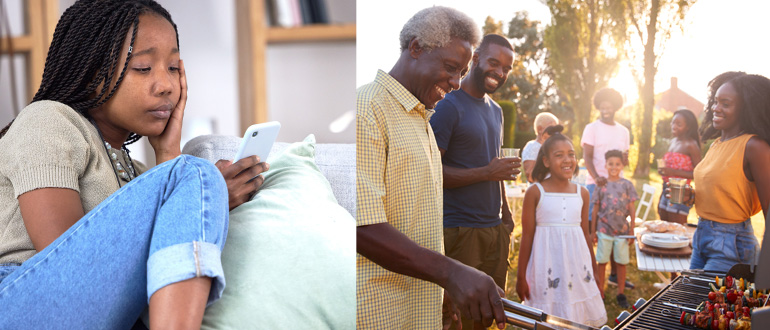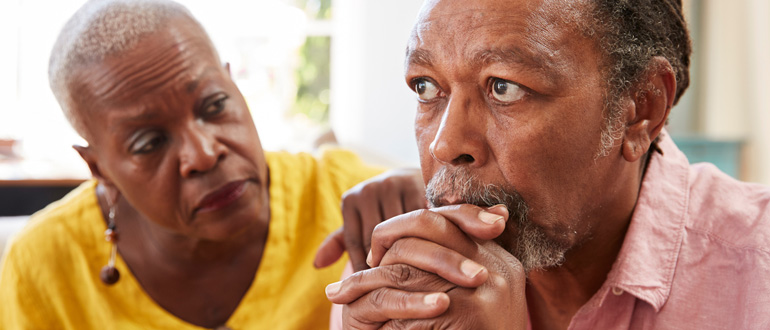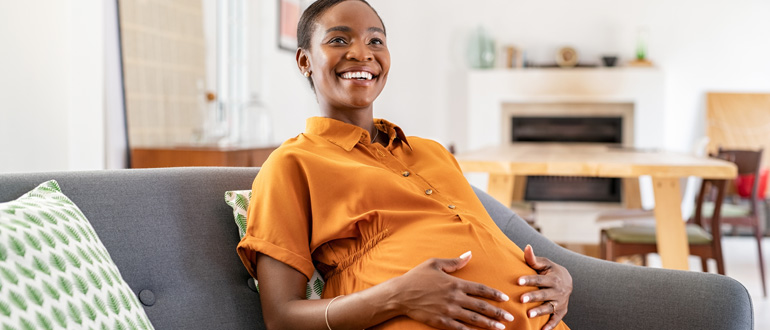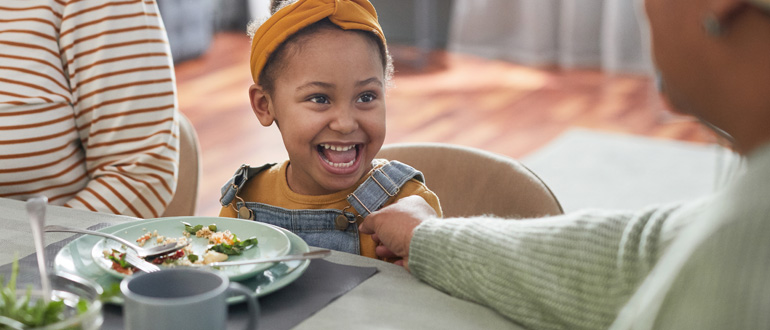Self-care and the internet: When to take a break

What’s the matter with kids these days? You can’t get them to put down their phones for a nice family dinner. They’re constantly on TikTok!
That’s a cliché, of course. Most people from older generations are just as invested in their devices as young people are.
Now that communication has become portable, people are constantly refreshing their news feeds, perusing social media, checking email outside of traditional working hours, shopping, downloading apps to help them get organized, help them relax, help them become better people, help them improve and improve and improve and do and do and do.
It gets exhausting.
You take the good, you take the bad
Social media—and the internet in general—presents a mosaic of possibilities for its users, none of which are inherently positive or negative. Just a few examples: You can more easily connect with old friends. You can see news from all over the world. You can find resources to pursue a hobby. You can access health information.
But for every positive experience you might have in any of those categories, a negative one is also possible.
For example, you might find your childhood best friend on social media and reconnect! Your children might be the same age, and as you share stories, you rekindle your relationship. That friend becomes part of your support system.
But you could also find yourself forever scrolling through the news of the day, encountering stories about social injustice or violence (also known as doomscrolling), which leads you to think that people don’t care about each other.
Or you might be dealing with chronic pain, so you look up your symptoms and discover that it’s possible you’re experiencing anything from tendinitis to multiple sclerosis to terminal cancer.
Depending on the way your mind works, you might find yourself tunneling into information you may not actually be qualified to process, convincing yourself of the worst-case scenario. But you may also find something that empowers you to advocate for yourself when you see your doctor.
Balance your screentime with greentime
Social media and doomscrolling can amplify feelings of anxiety and depression. It’s hard to avoid messages of continuous self-improvement, misinformation, manipulated images, and bad news. That’s why it’s so important to recognize when you’ve tipped into the negative side of the online world and take a break.
Close your laptop. Put down your phone. Build a boundary that you won’t look at your social media past seven p.m. or before 10 a.m. (or whatever timing works best for you.) Some people find it useful to put their phone in a literal jail with a lock or tuck it into a literal bed.
Balance your screentime with greentime. In other words, go outside and look outwards instead of inwards. Appreciate and savor the world without electronics.
Information can be a tool or a weapon, and you can inadvertently wield that weapon against yourself and your mental health. That’s why it’s important to take stock of the way that you use social media and the internet in general—and take care of yourself so it doesn’t negatively impact your life.






